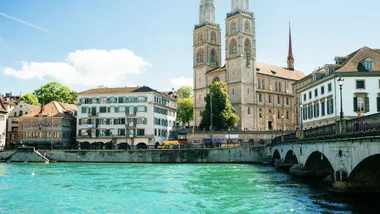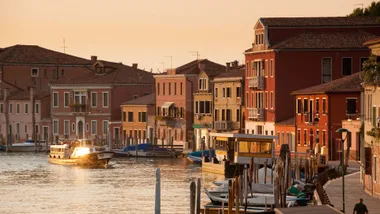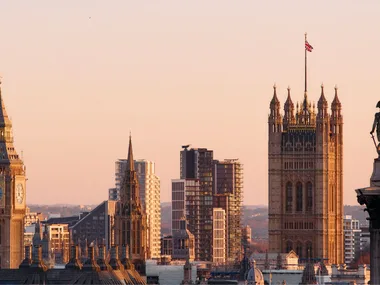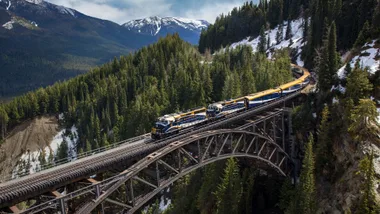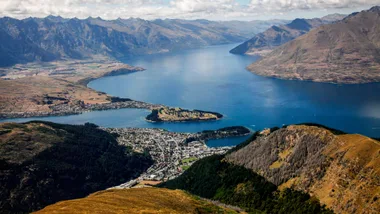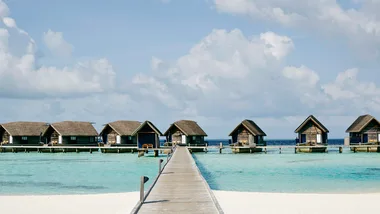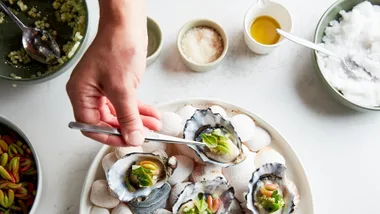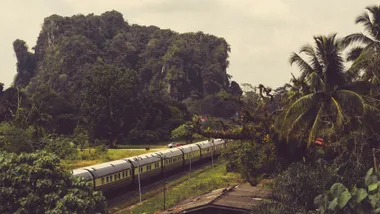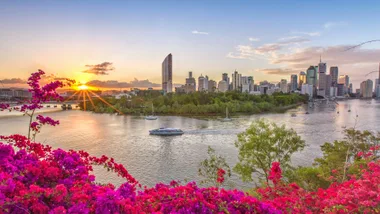GETTING THERE
Air New Zealand flies to Auckland from all Australian capital cities, with daily connections to Nelson from Auckland, Wellington and Christchurch.
Nelson Tasman Tourism produces a Nelson Craft Beer Trail brochure, including maps and recommended beer outlets, restaurants and trail tour operators. +64 3 546 6228
STAY
Surrounded by national park and the retreat’s exotic gardens, Split Apple overlooks Tasman Bay and wows guests attracted by its reputation as both a wellness centre and an exclusive luxury getaway. There are three oceanfront rooms, and the retreat’s fit-out is a harmonious blend of contemporary design and antique art and artefacts. The beautifully presented and nutritionally balanced meals are a highlight. From $673 per night. 195 Tokongawa Dve, Motueka, +64 3 527 8377
This charming heritage villa has convivial B&B hospitality and rooms featuring antiques and original artworks and convivial B&B hospitality. Opposite the entrance to Nelson’s pretty harbour, it’s within walking distance of excellent restaurants. From $240 per night. 385 Wakefield Quay, Nelson, +64 3 546 7275
EAT
With a lively, casual atmosphere, Hopgood’s is a showcase of Nelson’s great wines, craft beers and produce. 284 Trafalgar St, Nelson, +64 3 545 7191
Although it serves “food to share”, you probably won’t want to. There’s a classical respect here for simplicity and precision cooking. 350 Wakefield Quay, Nelson, +64 3 546 9783
DRINK
Centrally located, this is a community centre for the beer-minded. Always 16 craft beers on tap and a discerning clientele of craft beer fanciers in attendance. 95 Collingwood St, Nelson, +64 3 548 9391
There’s a rotating list of about 135 craft beers and ciders, and great pub grub. This is the best place to find the brews of local craft-brewing hero Martin Townshend. 1406 Moutere Hwy, Upper Moutere,
+64 3 543 2759
DO
Travel by helicopter with a chef and his barbecue to a secluded beach, vineyard, high-country station or mountain clearing for a memorable meal of seafood, meat or game fresh from its source. +64 3 541 9530
Follow self-guided half-, single- or multi-day “Great Taste” routes taking in craft breweries, wineries and eating houses on hired bikes with maps provided. 411 Nayland Rd, Stoke, +64 3 929 5652
Doug Donelan looks perfectly presentable for our lunch date at the Jester House Café in Tasman, at the top of New Zealand’s South Island. But I’m momentarily surprised when he announces he’s in the fashion business.
It quickly dawns, however, that the reference is to his role as chief executive of New Zealand Hops, an industry that’s adjusting to the fact the hop is now hip, for the explosion of craft brewing here in Nelson has given the region a new label – craft-beer capital of Brew Zealand.
I don’t share the current enthusiasm for holidays outside one’s comfort zone. I’m an advocate of holidays deep within the comfort zone, and that’s why I’m in Nelson, a city as sparkling as an amber ale, as elegant and refined as a pilsner, and as satisfying as a dark lager. It isn’t listed among the world’s hottest destinations – another reason why it’s one of the world’s nicest.
Even before I’d bent an elbow, Nelson was striking a chord. This place has always had élan. Life aboard the ships bringing settlers to the antipodes wasn’t always pretty, but the tone aboard the New Zealand Company ships Arrow, Whitby and Will Watch, bringing settlers from the English port of Gravesend to Nelson, must have had a degree of refinement. The ships had ventured only as far as the Bay of Biscay in May 1841 when the officers aboard created the Literary and Scientific Institution of Nelson and sent money back to home for books “of a useful character” to form the basis of a library. Exhibits and artefacts were also donated.
The suggestion of privilege was confirmed in 1858 when Nelson was proclaimed a city by Royal Charter, the first in the South Island. To a degree, this sense of prestige remains today, though the city of about 46,000 and rising also radiates an impression of having rolled up its sleeves. Newcomers are attracted by the Nelson-Tasman region’s spectacular coastal scenery – spanning Tasman and Golden Bays, and Abel Tasman National Park – and the city’s cosmopolitan atmosphere; its events calendar is stacked with festivals, concerts and exhibitions celebrating the region’s art, music, food, wine and, yes, beer. This year-round activity rewards the city with surprisingly upscale dining and a lively bar scene.
Artisanal enterprise has long been respected and supported in this region. Ceramicists, glassblowers, woodworkers and silversmiths live here in a sort of Middle Earth meets middle age; locals boast that The One Ring in The Lord of the Rings film trilogy was designed and crafted in Nelson. This respect for the artisanal ethic might account for the fact this region has more craft breweries per head of population than anywhere else in the country. That, and the hops.
Hard on the heels of the British settlers who brought enlightenment to these parts was a shipload of German migrants who brought hops – it was always going to be the meeting of two great cultures. Today the region grows New Zealand’s entire commercial hop harvest. When the great craft beers of Nelson-Tasman are analysed, it’s the freshness of the hops that distinguishes them. Hops oxidise with time and travel, and beers brewed close to the hops’ source display a fresh zing and spiciness.
What defines a craft beer? The US Brewers Association says it’s a brewery that’s independent of major brewery control and which produces no more than six million barrels a year, of which at least half comprises flavour-driven all-malt beers. In our part of the world, the definition is a little more fluid, but by common consent it refers to beer based on ingredients and methods chosen by the brewer, rather than the accountants or the marketing department.
Regardless of the temperature at which they’re served, craft beers are hot. While there’s a worldwide trend of declining mainstream beer sales, craft beer sales are rising. In the US, where the revolution began, there are more than 2,500 craft breweries. In the UK, where total beer sales are plummeting, 187 new craft breweries emerged last year. Portland, Oregon, and Bristol in south-west England are established craft-beer tourism destinations. In New Zealand, it’s Nelson.
In most creative environments, the advice is “think outside the square”. In Nelson, it’s “drink outside the square”. Distinctive regional characteristics appear in its beers, wines and ciders. “Today, beer is being produced by hobbits in anoraks and drunk by toffs in tuxedos,” says Dick Tout, who bills his Lighthouse Brewery in Nelson as “the smallest legal brewery in the country”. Innovation is a key element of craft brewing, but even other craft brewers regard Tout as a maverick. His microbrewery has a tiny 200-litre capacity, and on any given day he might produce a complex pilsner, a chocolatey stout or a boysenberry cider. The same creative spirit is infused in Patrick Stowe’s handcrafted Rimu Grove wines, in the spirits and liqueurs from Liquid Alchemy Distillery, in Max Jones’s Da’Maha organic coconut water, and in Caroline and Alex Peckham’s ciders. The Peckhams make their English-style cider from 20 varieties of heritage cider apple trees grown in their Moutere Valley orchard, the largest cider orchard in New Zealand.
Donelan proves a fine guide on the Craft Beer Trail, stretching from Founders Heritage Park in mid-city Nelson to Onekaka, 120 kilometres north-west in Golden Bay. This amber highway of more than 20 breweries and venues provides a lively backdrop to the craft-beer revolution. A regular judge in international competitions, Donelan knows hops and he knows beer. He thinks beer is an appropriate drink with which to toast major milestones such as peace on Earth or the fact the fridge is still working. He also has firm opinions about the choice of beer over wine.
“People have realised that these days you can eat well without a lot of pretension and mega-bucks,” he says over a double-baked cheese soufflé at Jester House. “Many people are still more comfortable with beer than wine. They are finding that beer is a great companion for modern food, and they are finding that craft beers allow them to express their individuality and style without wine’s snobbiness.”
It’s an opinion reflected in many of Nelson’s better eating houses. The menu at promisingly named Hopgood’s Restaurant & Bar recommends pairing The Mussel Inn’s Captain Cooker Fresh Manuka Beer – a spicy brew with hints of ginger and rose oil – with the duck dishes; Bays Amadeus Pilsner with the scampi or scallops; and Founders Red Ale – slight malt sweetness and clean hop bitterness – with slow-cooked pork belly. Chefs Kevin Hopgood and Aaron Ballantyne use local ingredients in dishes that are a revelation of flavour and presentation. There’s plenty of local pride here: there’s respect for craft beer, organic vegetables are hand-picked daily and the wine list pays tribute to the best local producers, including Neudorf, Seifried, Rimu Grove, Greenhough and Woollaston Estates. Hopgood is enthusiastic about matching beer with food, believing the effervescence in beers allows them to express complex flavour profiles more emphatically than wine.
On the waterfront at Boat Shed Café, Daniel Monopoli also champions local craft beers. His career includes a term at David Thompson’s Nahm restaurant in London, and the sharing concept at Boat Shed draws on Thompson’s belief in presenting a selection of dishes to create balance and harmony. Boat Shed’s setting and Monopoli’s instincts make oysters, mussels and cockles favourites on the menu – “Great,” he says, “with the citrus aromas of pale ale and, in the case of oysters, even the malty classic stout from Lighthouse Brewery.”
A detour from the Craft Beer Trail still involves superior brews. An outing called The Food Source shows you can survive in the wild with just a barbecue – oh, and a chef and a helicopter. From Nelson airport or the Reid helicopter base at nearby Wakefield, hop aboard the chopper with chef Matt Bouterey of Boutereys Catering and his barbecue, and flit off for an unforgettable lunch. It might be to a deserted beach for a meal of freshly caught seafood; or a vineyard to pick up some wine, then off to a high-country sheep station.
And here we are, more than 1,000 metres up in the Richmond Ranges, waiting for feral goats to scamper off a forest clearing. This is the setting for our lunch of spicy fennel gazpacho, salmon sashimi, confit duck leg with toasted almonds, spinach, cress, basil and parsley, and caramelised apple and almond cake. “Will you have wine with that,” Bouterey asks, “or a local craft beer?”
A compulsory visit on the Craft Beer Trail is The Free House in Nelson. Since opening in 2009, it has introduced its clientele to more than 500 beer varieties from more than 60 New Zealand craft brewers. Independence is at the heart of The Free House concept borrowed from Britain; hotels are owned independently of the breweries that supply them, so can serve any beer they wish. Mic Dover and Eelco Boswijk established the pub in a former Dutch Reform Church in 2009. “We don’t exactly worship beer,” says Boswijk, “but we do hold it in great reverence.” Part converted church and part Mongolian yurt, it’s a convivial crucible of libertarian ideals, virtue ethics, stimulating conversation, live music and conspicuously good beer.
Terry McCashin began brewing craft beers in the Nelson suburb of Stoke in 1981 when the only beers available in New Zealand pubs were made by two major breweries. McCashin’s Mac’s beers were a revelation and their success led to the inevitable – a takeover by the Lion Nathan group. The McCashin family retained ownership of the brewery building, however, and in 2009 McCashin’s eldest son, Dean, reopened it and launched Stoke beer. McCashin’s is the largest of Nelson’s independent brewers and currently bottles 10,000 litres a day. The distinctive Stoke Bomber range includes a smoky ale reminiscent of Bavarian smoked beer and a KPA (Kiwi Pale Ale) that features notes of marmalade, peppery spices and the characteristic citrus hints of local Wai-iti hops.
You’re never far from a craft-beer outlet on the trail. When calculating travel times, allow for the fact there are six Sprig & Fern taverns and a Sprig & Fern brewery dotted around the district. There’s Founders Brewery, The Free House and Harrys Bar in Nelson city, and McCashin’s Brewery, Lighthouse Brewery and Bays Brewery in the nearby suburb of Stoke.
In the beautiful Tasman and Golden Bay areas west of Nelson, lifestyles get more alternative and the beers get funkier. A favourite stop for beer trailblazers is the Golden Bear Brewery at Mapua, where expat Californian Jim Matranga produces about a dozen distinctive beers, the bestseller being Seismic India Pale Ale. His two great loves are beer and Mexican food, ideally together, so the brewery café serves tacos, burritos, quesadillas, nachos and tostadas. The afternoons pass quickly here.
All Nelson’s craft brewers give a nod of deference to Martin Townshend, of Townshend Brewery in Upper Moutere. He’s noted for his American amber ale Sutton Hoo and Black Arrow Pilsner. The place to taste them is Moutere Inn, built in 1850 and one of New Zealand’s oldest pubs. With 16 taps of local craft beer and gastro-pub dining, this is a magnet for craft beer fashionistas. It’s also home to the Moutere Brewing Company, which produces traditional German-style brews in recognition of the area’s early German settlers.
Newest of the Nelson-Tasman brewers attracting trail traffic are Simon and Nicki Nicholas. They live among the hops they use in the Hop Federation Brewery they’ve established in an old butcher’s shop at Riwaka, on the border of Tasman and Golden Bays. They came here for a relaxed life, but there’s no doubting the focus that goes into their popular Red IPA (India Pale Ale) and a complex, malty American Brown Ale.
The Craft Beer Trail ends at Onekaka in Golden Bay, where Andrew Dixon’s Mussel Inn makes the celebrated Captain Cooker Fresh Manuka Beer based on a recipe, it’s claimed, that Captain Cook created for his crew. An all-malt beer using organic local hops, it’s flavoured with fresh tips from the native manuka tree.
Many varieties of hops have been developed – and are still being developed – since German and English settlers established hop gardens here more than 150 years ago. Today the region produces 16 unique varieties – hops with names such as Motueka, Riwaka, Wai-iti and Nelson sauvin revealing ties to the region’s history and geography. The hop of the moment is sauvin, which displays the distinctive gooseberry notes that have made local sauvignon blanc wines so popular.
The region’s hop-growing epicentre is contained within the triangle defined by Motueka, Tapawera and Brightwater, the latter town just out of Nelson. Among the 17 growers who own New Zealand Hops Limited are Colin Oldham (owner of New Hoplands, one of New Zealand’s first organic hop farms) and Peter Lines, at Wakefield. While Oldham has the distinction of being a Knight of the Order of the Hop – an ancient French order – he and Lines describe themselves as “a couple of farmers doing a bit of brewing”. They are directors of the Totara Brewing Company, New Zealand’s only hop-farm brewery, and source of the acclaimed Totara Gold beer and limited-edition Ninkasi Green ale. In the droll manner of laid-back Nelson, Lines says: “We only sell what we can’t drink ourselves.”

Peter Lines, co-director of Totara Brewing Company

